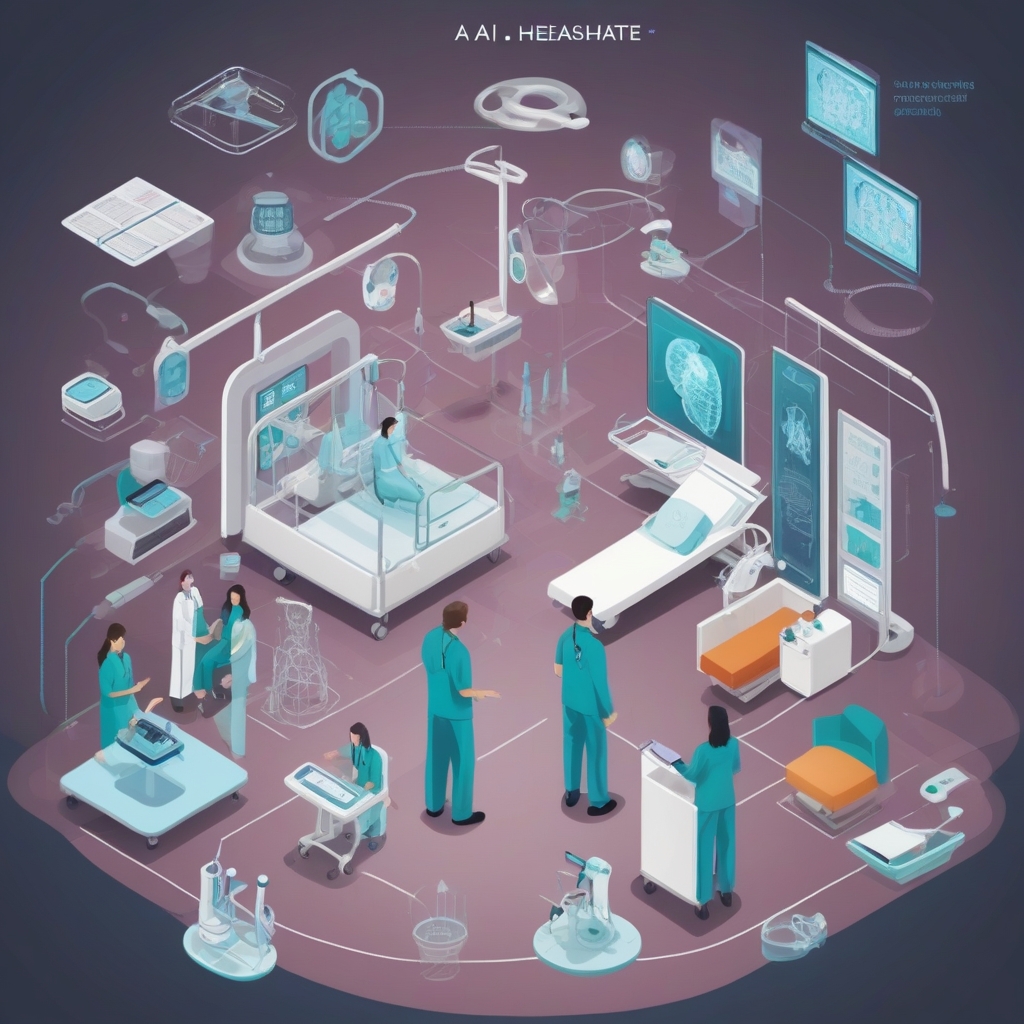The integration of AI in healthcare is revolutionizing how medical professionals diagnose, treat, and care for patients. From predictive analytics to robotic surgeries, the applications of AI are vast and transformative. In this article, we explore six remarkable uses of AI that are reshaping the healthcare industry.
1. Enhanced Diagnostic Accuracy
AI in Medical Imaging
AI-powered diagnostic tools have significantly increased the accuracy of medical imaging. By analyzing vast amounts of data from CT scans, MRIs, and X-rays, AI algorithms can identify abnormalities that may be missed by human eyes. This is particularly crucial for early detection of diseases like cancer.
Benefits:
- Early and precise detection of diseases
- Reduced human error in diagnostics
- Improved patient outcomes
Machine Learning in Pathology
Pathologists now leverage machine learning to analyze tissue samples more efficiently. AI systems can detect patterns and anomalies in cellular structures, speeding up the diagnostic process and increasing accuracy.
Advantages:
- Faster diagnosis
- Higher diagnostic precision
- Better allocation of pathologists’ time
2. Personalized Medicine
Predictive Analytics
AI uses predictive analytics to tailor treatments to individual patients. By analyzing genetic information, medical history, and lifestyle factors, AI can predict how patients will respond to certain treatments and medications.
Key Benefits:
- Customized treatment plans
- Reduced trial-and-error in medication prescription
- Better management of chronic diseases
Genomic Sequencing
AI algorithms can process and interpret genomic data quickly and accurately. This information enables healthcare providers to offer personalized therapies, considering unique genetic makeup and potential responses to treatments.
Implications:
- Understanding genetic predispositions to diseases
- Developing targeted therapies
- Preventing adverse drug reactions
3. Robotic Surgery
Minimally Invasive Procedures
Robotic surgery systems, controlled by AI and operated by skilled surgeons, offer high precision in performing complex procedures. These systems facilitate minimally invasive surgeries, which typically result in shorter recovery times and reduced complication rates.
Benefits:
- Reduced surgical errors
- Minimized tissue damage
- Shorter hospital stays
Remote Surgery
AI-driven robotic systems enable surgeons to perform surgeries remotely, breaking geographical barriers. This is especially beneficial for patients in remote or underserved areas who need access to specialized surgical expertise.
Improvements:
- Access to specialized care regardless of location
- Increased surgical reach
- Enhanced surgical precision
4. Virtual Health Assistants
24/7 Patient Support
Virtual health assistants, powered by AI, provide round-the-clock support to patients. These virtual assistants can answer medical queries, assist in medication management, and offer reminders, significantly boosting patient engagement and adherence to treatment plans.
Advantages:
- Continuous patient support
- Improved medication adherence
- Enhanced patient satisfaction
Telemedicine Integration
AI-integrated telemedicine platforms enable virtual consultations, where AI assistants can pre-screen patients, collect relevant information, and provide initial diagnosis, allowing healthcare professionals to focus on more complex cases.
Key Benefits:
- Efficient patient triage
- Reduced wait times
- Better utilization of healthcare resources
5. Predictive Healthcare Analytics
Hospital Management
AI analytics are revolutionizing hospital management by predicting patient inflows, optimizing bed management, and scheduling surgeries. These predictive capabilities lead to more efficient resource allocation and better management of hospital operations.
Benefits:
- Optimized patient flow
- Reduced hospital overcrowding
- Improved operational efficiency
Preventative Care
By analyzing patient data, AI can predict potential health risks and suggest preventive measures. This proactive approach helps in early identification and intervention, potentially reducing the burden on healthcare systems and improving patient outcomes.
Advantages:
- Early detection of health issues
- Better management of chronic conditions
- Enhanced patient longevity
6. Drug Discovery and Development
Accelerated Research
AI accelerates the drug discovery and development process by analyzing extensive datasets to identify potential drug candidates more quickly and accurately. This can significantly reduce the time and cost associated with bringing new medications to market.
Key Benefits:
- Faster drug discovery
- Reduced research and development costs
- Innovation in treatment options
Optimized Clinical Trials
AI optimizes clinical trials by identifying suitable candidates, predicting outcomes, and monitoring patient data in real time. This ensures that trials are more efficient and effective.
Advantages:
- Improved trial success rates
- Better patient selection
- Real-time monitoring for swift decision-making
In conclusion, AI is transforming the healthcare industry, leading to more accurate diagnostics, personalized treatments, advanced surgical procedures, and enhanced patient care. As AI continues to evolve, its role in healthcare will only become more integral, promising a future of improved outcomes and greater efficiency for both patients and healthcare providers.

Leave a Reply